In dreams
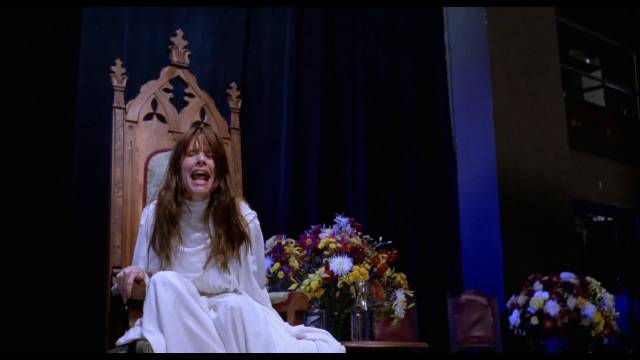
In 1984, Wes Craven tapped into something which was percolating through the culture with A Nightmare on Elm Street, a movie whose horror was rooted in uncertainty about what was real and what imaginary – with threats from an imaginary dimension (dreams) penetrating the real world with viscerally violent effect. While blurring the lines between dream and reality has had a long tradition in fantasy and horror, in literature and film, Craven managed to create what has become the definitive text. But there were quite a few others from around the same time and in the following years (Joseph Ruben’s Dreamscape [1984], Andrew Fleming’s Bad Dreams [1988]), three of which I’ve just caught up with on Blu-ray – two recently released by Arrow, the third tracked down on a seven-year-old out-of-print French disk (for some reason, it doesn’t seem to have been released in England or the U.S.).
*
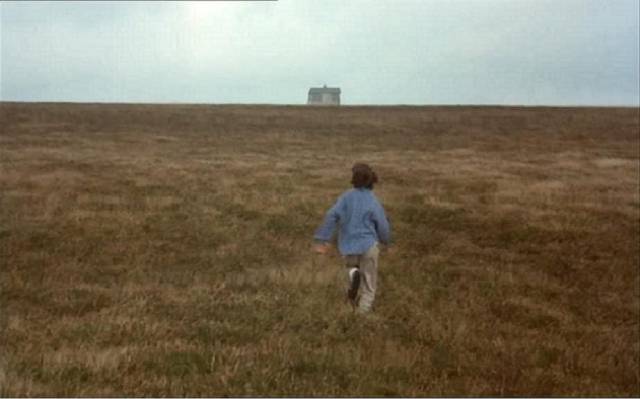
Paperhouse (Bernard Rose, 1988)
After several years making shorts and music videos and a couple of barely noticed features, Bernard Rose had something of a breakthrough with Paperhouse (1988), a strange, almost unclassifiable adaptation of a children’s novel by psychologist Catherine Storr. While at times it teeters on the edge of sentimental whimsy, Paperhouse has an ominous tone, dealing as it does with a young girl’s coming of age through a confrontation with death and a frightening awareness of her own and others’ mortality.
Anna (Charlotte Burke) is a bright, imaginative eleven-year-old who chafes at authority (in the opening scene she butts heads with her teacher over an issue of fairness) and deals with insecurity at home by rebelling against her frustrated mother while her father is away for a long time (something to do with a job we are never given any details about). Her feelings for her father are conflicted; she misses him, but also has anxiety relating to what may be a drinking problem. As we see everything from Anna’s point-of-view, some things about the adult world remain mysterious.
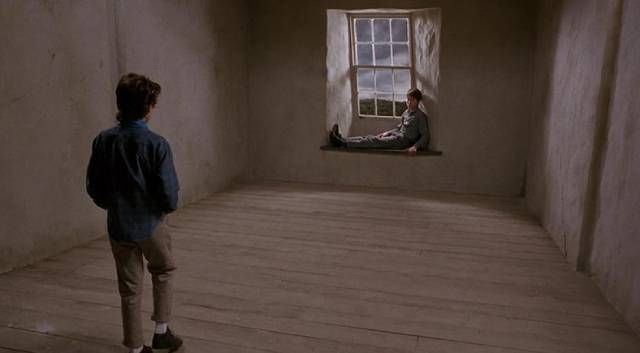
Following her argument with her teacher, Anna faints in the school hallway and suddenly finds herself in a not-quite-real landscape, a grassy hillside dominated by a house which looks very much like a drawing she has just made. She runs to the house and hammers on the door, demanding to be let in, but there’s no reply. Waking up surrounded by her classmates, she’s sent home with her mother. But she tells her mother in the car that she was faking the faint and is driven back to school; skipping classes with a friend, she faints again and finds herself back at the house on the hill.
Having in the meantime added to the drawing a face in an upstairs window, she finds a boy looking down at her. He says he can’t let her in because there are no stairs and he can’t come down. Realizing that whatever she draws manifests in these “dreams”, Anna sets to work to elaborate on the drawing so that when she returns, she can enter the house and climb to the second floor, where the boy, Marc (Elliott Spiers), is surrounded by a litter of objects she has drawn. Having himself only been drawn as a head and shoulders in the window, it turns out that he can’t walk. A subsequent attempt to draw him some legs fails, and Anna discovers from her doctor that Marc’s real-world self is a boy suffering from muscular dystrophy, bed-bound and dying.
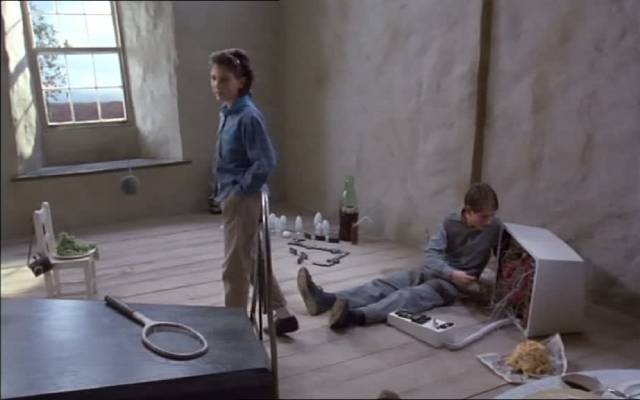
Anna herself is ill, her fainting spells related to glandular fever, and she now spends more and more time in the other world with Marc, trying to help him through her drawings. At one point, she adds her father to the drawing, but in a fit of anger strokes him out with her pencil and then balls the paper up and throws the drawing away. Hearing from the doctor that Marc has gone into a sudden decline, she realizes that what she does to the drawing has an effect in both worlds and desperately tries to retrieve it as the garbage men are collecting the trash.
Things get much darker at this point because of the damage she has done to the dream world, wrecking the house and making Marc’s condition worse. But not only that – her father appears on the hillside, his face scarred and blinded by her angry pencil strokes, and he attacks the house to get to her. Stuck in the dream world, Anna has to reach out to her unconscious real self and somehow tear off the part of the drawing containing her father, causing the entire landscape to break open and disintegrate.
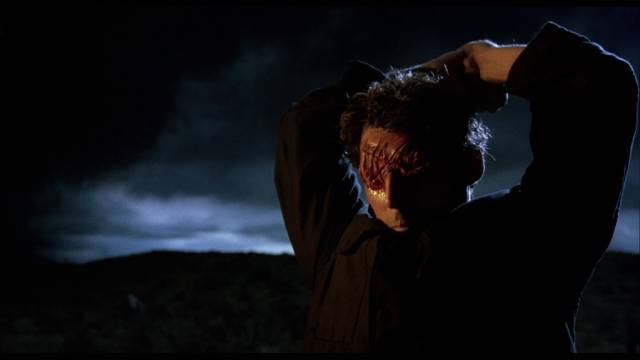
Waking, she finds that her father has returned and, as she recovers from her illness, plans are made to go for a holiday by the sea. Learning that Marc has died, Anna is moody and unresponsive until she discovers that there are connections between the seaside town and the landscape of her dreams. She even manages to contact Marc and almost follows him to the other side, pulled back at the last minute by her parents … which is where the sentimentality kicks in, with Anna now able to accept the fact of death because she knows that Marc is whole again and in a better, happier place.
If the resolution is embarrassingly trite, the evocation of the dream world – where Anna experiences a range of feelings and even trauma which help her to understand the complications of life beyond childhood – is quite wonderful. The cinematography of Mike Southon avoids traditional “dream” effects, giving this other world (a mix of actual landscapes and in-studio exteriors) a tactile quality which makes it as real as Anna’s actual reality. The film’s chief pleasures are this visual quality and the impressive performance of Charlotte Burke, who was just thirteen at the time, and despite her obvious talent never acted again. She’s ably supported by Spiers (who, according to Rose, committed suicide a few years later at twenty), Glenne Headly and Ben Cross as her parents and Gemma Jones as Dr. Nicols.
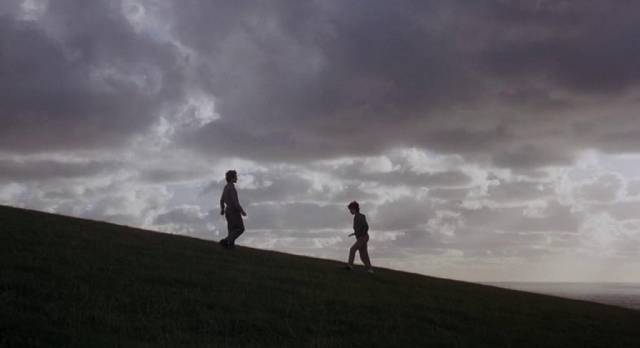
The 2013 French Blu-ray from Metropolitan Films is out-of-print, but can still be found online (in prices ranging from quite reasonable to somewhat inflated). Despite what I’ve read on some comment threads, I thought the image was gorgeous and pristine. There’s an interview with Rose which is quite interesting – even as he made the film, he knew it wasn’t very commercial but felt compelled and was fortunate that someone was willing to fund it. There’s a second, briefer interview clip about the score – he’s somewhat ambivalent because he loved Stanley Myers’ music but was persuaded to replace parts of it with more aggressive cues by Hans Zimmer. There’s also a gallery of production art and storyboards, a trailer, and an interview with director Pascal Laugier (Martyrs, Incident in a Ghostland), which is in French without English subtitles.
Interesting sidenote: one of the executive producers was Dan Ireland, who directed one of my all-time favourite movies, The Whole Wide World (1996), which also draws rich emotional effects from the intersection of imagination and the real world.
*
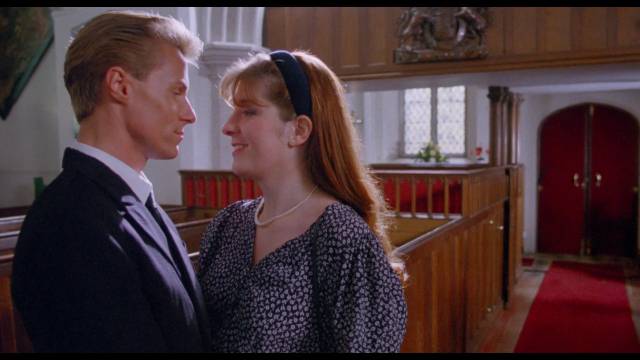
in Harley Cokeliss’ Dream Demon (1988)
Dream Demon (Harley Cokeliss, 1988)
Born in the States, Harley Cokeliss (aka Cokliss) moved to England in the mid-’60s and began making films in 1970, starting with documentaries and, in the mid-’70s, making a couple of highly regarded films for the Children’s Film Foundation. I first came across him in 1982, when I got the impression he was a New Zealander because his Mad Max-”inspired” Battletruck/Warlords of the 21st Century was made down there. I wasn’t much more impressed four years later when he came out with the John Carpenter-scripted Black Moon Rising (1986), a fairly routine B-movie thriller. After that, I occasionally saw his name on episodes of Hercules: The Legendary Journeys and Xena: Warrior Princess.
It turns out I totally missed what is probably his best (or at least most interesting) feature because it quickly disappeared into poor-distribution limbo soon after its initial release. Dream Demon (1988) was a Palace Pictures production nurtured for several years with Christopher Petit attached as director; it went through a number of script variations before ending up with Christopher Wicking (Scream and Scream Again, Cry of the Banshee and other horrors) and being offered to Cokeliss by Palace’s Nik Powell.
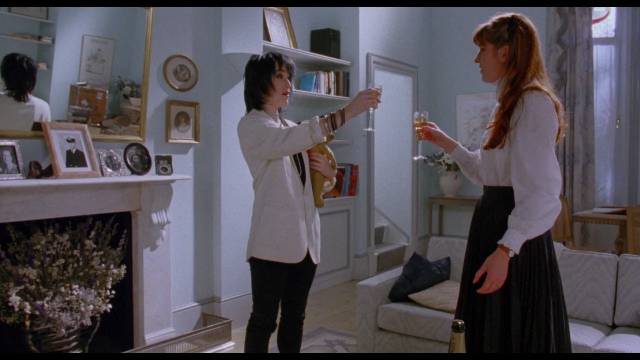
The debt Dream Demon owes to Wes Craven’s Nightmare is obvious, though it’s neither as horrific nor as coherent. (There are also hints of Hellraiser’s demon dimension.) Cokeliss’ movie bears the scars of multiple writers for whom the concept went through various different focuses, taking on some comedic elements which undercut the horror. There are actually two main narrative threads which never quite blend together into a satisfying whole. The first begins with Diana (Jenna Redgrave) having a nightmare about her upcoming wedding to Falklands war hero Oliver (Mark Greenstreet). Through her dreams and conversations with her therapist Deborah (Susan Fleetwood), we learn that a large part of her anxiety is due to being a virgin and fearing what she’s in for on her wedding night.
That anxiety is aggravated by the attention she’s getting from the tabloid press because of who she’s marrying. She’s waylaid several times by an obnoxious reporter and his even more obnoxious photographer, Jimmy Nail and Timothy Spall respectively providing a nasty comic element which is actually more nightmarish than the bad dreams themselves.
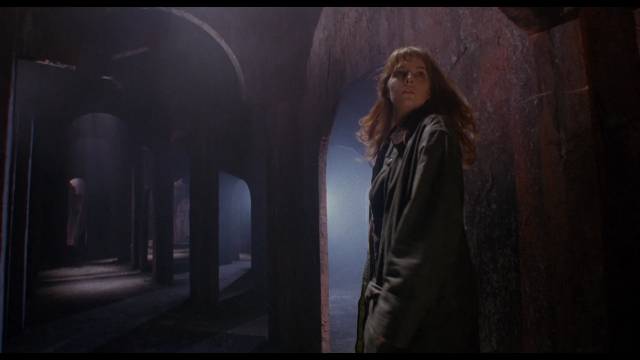
The second thread kicks in when a young woman comes to Diana’s aid as she’s being harassed by the press outside her house. Jenny Hoffman (Kathleen Wilhoite) is Diana’s opposite, uninhibited with an aggressively punk style and attitude. Although American, she reveals that she’s in England tracing her roots and that she’s learned that the big house Diana’s father has bought her as a wedding present is where she was born, though she has no memory of her early years before she was adopted by an American couple.
Diana and Jenny form a kind of alliance as Diana’s dreams become more menacing and begin incorporating elements from Jenny’s forgotten childhood. The house itself and that forgotten history seem to infuse the dreams with a malevolent power which can affect the real world. The cellar manifests as Diana’s tormented subconscious while the upper floor is the realm of Jenny’s buried memories, which are gradually revealed; as a young girl, she was terrorized by her abusive father, a sculptor who literally held her in bondage as a model tied to a cross while he carved the figure of an angel with her face.
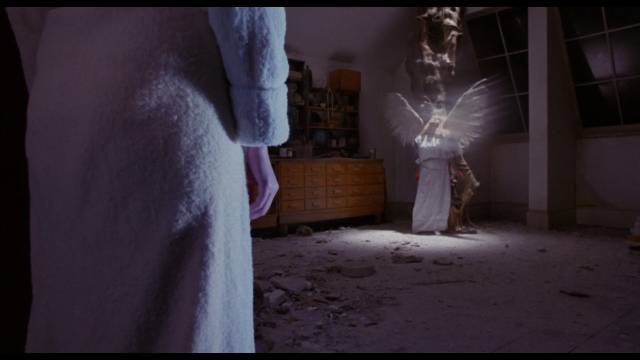
The house becomes a maze in which the two women are lost as they confront their individual fears. Spall and Nails become monstrous avatars of greed and perversion trying to feed off Diana’s insecurity, while Jenny suffers through a reenactment of the death of her father, for which she felt herself responsible, hence the suppression of all childhood memories. As they work out their respective issues – learning along the way that Oliver is a creep who’s only marrying Diana for her money – the two women form a powerful bond which, in the final scene, hints very strongly at a lesbian relationship, which adds further meaning to Diana’s initial fear of marriage and sex with Oliver.
As the story progresses, the dream realm all but overwhelms the real world and the filmmakers have fun with the ever-expanding cellar maze and the grotesque makeup, particularly the transformation of Spall into a demonic glutton. What could have been grim and dark remains somewhat superficial and playful (it lacks the mythic qualities of an earlier Palace production, Neil Jordan’s The Company of Wolves [1984]). Still, if it lacks any real thematic resonance, Cokeliss does keep it entertaining and the cast deliver effective performances. Redgrave makes Diana’s naivete convincing and she and Wilhoite’s rather earthier character develop a plausible friendship as they bounce off one another. Greenstreet is unpleasantly slimy as a privileged creep, and Nickolas Grace chilling as Jenny’s deranged father, but Nail and Spall’s blackly comic duo rather overshadow everyone else.
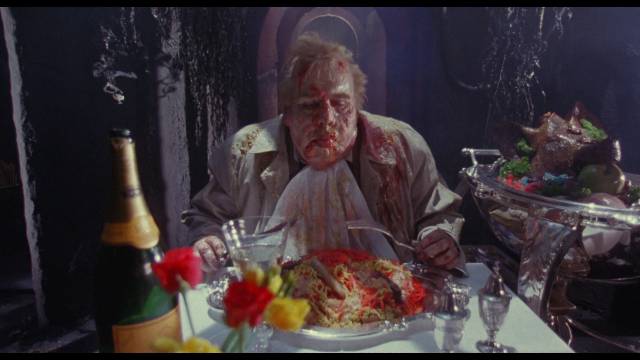
The film was considered lost until Cokeliss managed to track down the elements and clarify the rights, eventually allowing him to tweak the editing – that director’s cut gets an excellent 2K transfer on the disk along with the slightly longer theatrical cut which includes a brief coda with Nail and Spall which Cokeliss rightly judged detracted from the resolution of the two women’s intertwined stories. The disk also includes a partial commentary from Cokeliss and producer Paul Webster, as well as lengthy interviews with both of them which provide a detailed history of the film’s genesis and fate, plus interviews with Redgrave, Greenstreet, Grace and Annabelle Lanyon, who played Jenny as a child. There’s also an interview with composer Bill Nelson about his score, plus a making-of from 1988 and extensive BD-ROM content (script, continuity notes and complete storyboards).
Dream Demon may be a minor film, but Arrow have done an excellent job of resurrecting it from obscurity and situating it in the context of ’80s reality-bending horror.
*
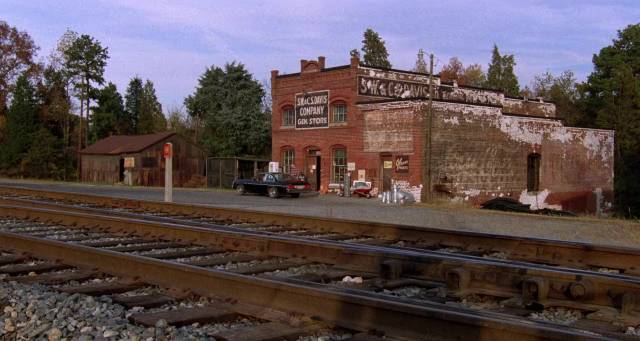
Black Rainbow (Mike Hodges, 1989)
Arrow have performed an even more significant act of resurrection with their Blu-ray of Mike Hodges’ Black Rainbow (1989). I’m not surprised that Cokeliss’ feature escaped my attention back in the day, but it’s a puzzle that one of Hodges’ finest films was completely unknown to me until this release. Hodges had a spotty career with gaps sometimes lasting years; after years of television work in the 1960s, he made an impressive feature debut with Get Carter (1971), a brilliant rethinking of the British gangster movie. But for the next sixteen years he failed to match that commercial and creative success as he stumbled with occasionally interesting projects which were not satisfyingly realized – Pulp (1972), The Terminal Man (1974), Flash Gordon (1980). He was fired from Damien: Omen II (1978), made the lame comedy Morons From Outer Space (1985) and a number of TV movies before partially recapturing the impact of Get Carter with A Prayer for the Dying (1987), the story of an IRA killer who goes underground during a crisis of conscience. But he only regained critical accolades with Croupier (1998) and I’ll Sleep When I’m Dead (2003).
And yet it seems to have passed without notice that between Prayer and Croupier he wrote and directed a feature which is as close to a masterpiece as Get Carter. Black Rainbow is a revelation, with the English Hodges doing for the impoverished rural American South what he did for Northern England in his first feature. Aided by the great cinematographer Gerry Fisher, Hodges explores a landscape (around Charlotte, North Carolina) which has seemingly been abandoned in the wake of economic failure, populated by desperate people who have no choice but to work for exploitative corporations who are poisoning the environment and resorting to murder to protect their venal interests. The filmmakers find a desolate beauty in these towns with their boarded-up mainstreets and their weary inhabitants who crowd into churches looking for some kind of consolation.
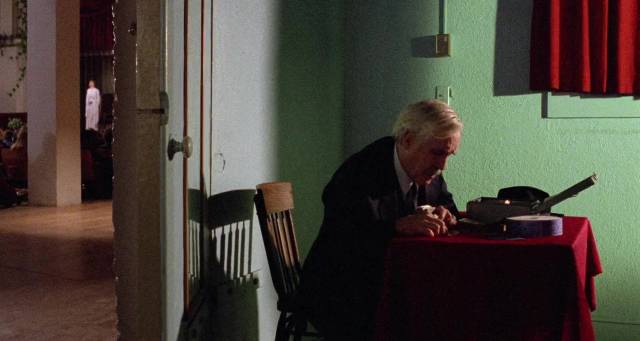
That consolation comes in the form of Martha Travis (Rosanna Arquette), an itinerant medium who travels from town to town with her manager-father Walter (Jason Robards) offering a vision of Heaven and delivering personal messages from the departed. Walter is a classic con man who’s been using his daughter to fleece the gullible since she was a young child, drinking away their earnings between gigs and blind to the toll the scam is taking on the now-adult Martha. For him it’s a matter of easy money, but for her it’s about giving real comfort to people who are lost and hurting.
But one evening something happens which throws everything off kilter. Instead of using typical tricks to give people what they want to hear, Martha slips into a genuine trance and begins speaking of the violent death of an audience member’s husband … which is creepy and upsetting because the man isn’t dead, but at home watching television. The whole performance collapses, the woman terribly upset and Martha herself frightened and confused. When Walter demands that she apologize, she refuses; something real happened to her and he’s not willing to acknowledge it. This could ruin their meal ticket.
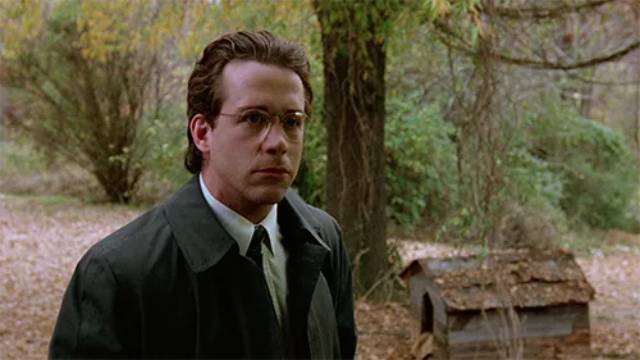
And then after the show, as the woman is back home in the kitchen, someone shoots her husband through the window, creating the exact bloody scene Martha described. Somehow the fake but well-meaning medium has gained the ability to see the future, a future not of comforting platitudes but rather of violent deaths. It happens again in the next town, where she reels off a string of names, men who work for the only substantial company in town where the following day an explosion in the plant kills everyone Martha named. People who had seen her as a blessing suddenly call her witch and blame her for the tragedy as though by predicting it she actually caused it.
Walter starts drinking more as Martha’s new abilities ruin the con, but there’s more than a loss of income to worry about – on that first evening, Martha described the killer which makes her a threat to the local businessman who hired an out-of-town hitman to dispose of an employee who was planning to blow the whistle on safety violations. The businessman calls the hitman back to cover his tracks by killing Martha.
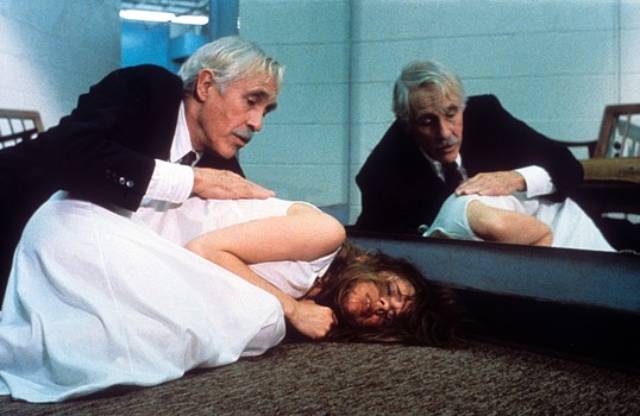
Hodges weaves together these threads – political, economic, religious and criminal – in a tightly constructed story centred on the complicated relationship between Walter and Martha and the impact an intrusion by something genuinely supernatural has on their lives. Rooted in a finely observed sense of a particular time and place, the film builds in emotional intensity as it moves inexorably towards tragedy. Although it’s framed by the investigation of a local reporter named Gary Wallace (Tom Hulce) whose own rational view of the world is shaken by what he sees, Hodges declines to wrap everything up with pat answers, leaving things ambiguous at the end.
Hodges’ craft here is as good as he ever got and he creates a context in which his cast do some of the best work of their careers – in Arquette’s case, without a doubt this is her finest performance, and Robards brings all the authority of a long and distinguished career to the role of a pathetic huckster disintegrating under the weight of his own sense of failure and dishonesty. Even in a role which could easily have devolved into an expositional device, Tom Hulce invests the audience-surrogate reporter with emotional nuance.
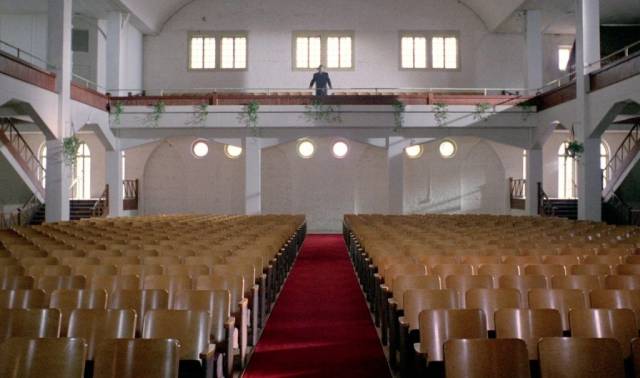
Black Rainbow should have been recognized as one of the director’s finest achievements, but rather like Dream Demon it got lost due to poor distribution when various companies changed hands and new management weren’t interested in projects initiated by the old regime. Not only have Arrow resurrected the film from decades of obscurity, they’ve done it with their usual impeccable attention to what matters with a stunning 4K scan from the original negative. (Apparently there were previous releases, on VHS and DVD, which totally slipped under my radar.)
There’s an archival Mike Hodges commentary from an earlier Anchor Bay DVD and a new commentary from Kat Ellinger and Samm Deighan, plus a collection of archival interviews and making-of featurettes.
*
Once again diligent companies show how essential they are to the preservation of the byways and tangents of film history. These three imaginative works from the 1980s, from a time before imagination became colonized by bombastic CGI, have all received the showcase they deserve on these disks where they’ll remain available regardless of the vagaries of Internet streaming where movies appear and disappear at the whim of corporate programmers.
Comments